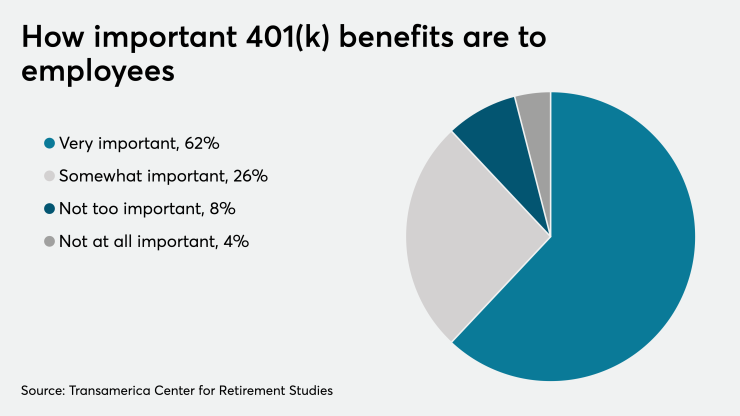Student loans are a favorite topic these days and for good reason. We’re a nation of spenders, and the level of student debt appears to be choking off credit in other markets such as borrowing for homes and cars. But student loans aren’t the only debt employers should be worried about. Indeed, 401(k) loans may present an even greater risk to the millions of American workers that have them.
A growing debt problem: 401(k) loans
Fewer people are looking at the debt employees take on from workplace savings plans, which is also growing. While many employers monitor the current value of loans in their plan, it’s really the future value of these loans, and the lost retirement security they represent, that seems to be missing from today’s conversation.
After all these plans exist to fund spending when today’s workers retire. And the downstream impact of defaulting on a loan can be catastrophic when a person reaches retirement age. According to a study by Deloitte, 401(k) loans default about 10% of the time and these losses, compounded by subsequent cash outs and lost investment returns, will cost workers more than $2.5 trillion dollars in retirement over the coming decade.
These loans are also treated differently. If student loan payments are missed, they get deferred; if 401(k) loan payments are missed and not corrected, the loans default and are taxed and penalized in the following tax year. That’s a big difference.
Assume Jane borrows $30,000 to attend college. Her payments will start six months after graduation or when she is no longer considered a full-time student. If Jane has trouble landing a job after college or finds herself out of work when her company downsizes, she can defer her student debt payments. She’ll still owe the outstanding loan balance and loan interest will accumulate while she’s not making payments.
Now let’s assume Susan worked with Jane at Friendly Company, where Susan had borrowed $7,000 from her 401(k) plan before she was affected by the same workforce reduction. Unlike Jane, Susan’s loan comes due the following quarter. Because Susan is out of work and struggling financially, the loan defaults when she is unable to find a comparable position and repay her loan. Susan is also unable to take advantage of the extended payment option offered by her employer because she lacks the income that someone changing jobs would have.
Susan’s 401(k) loan default is considered a plan distribution. She later compounds the problem when, strapped for cash, she has no choice but to dip back into her 401(k) to pay the taxes and penalties that follow the loan default. When she does this, she’s forced to cash-out her entire $70,000 balance because her plan, like many others, doesn’t allow for partial distributions.
Susan’s total default tab? $300,000, according to Deloitte’s study. That’s a big hit to her future retirement savings.
Is help on the way?
It seems everyone has a solution for student loans. Sen. Bernie Sanders (D-VT) proposed canceling all the outstanding student debt during a nationally televised presidential debate in June. Employers are also getting involved, seeing student loan assistance as a way to differentiate themselves in a tight labor market. Some employers have even begun using a 401(k) plan employer match as a means to encourage student debt payments.
Meaningful solutions to prevent 401(k) loan defaults are harder to find. No surprise this topic was left out of the presidential debate. Yet plan sponsors — who have a fiduciary duty to think long term and preserve the assets that workers use to generate income in retirement — have largely remained on the sidelines despite rising reports of plan leakage. After all, allowing employees to continue making loan payments after separating, doesn’t help workers that lose their jobs. Efforts to limit plan borrowing will only have a meaningful impact if 401(k) loans become more difficult to obtain than personal loans or more expensive than credit cards. Let’s hope that doesn’t happen anytime soon.
Fortunately, there may be a new solution. Plan sponsors can address the future risks of 401(k) loan defaults today by wrapping their plan loans with low cost insurance. Participants are enrolled in coverage when they borrow, and the insurance will repay the loan of any participant losing their job before it defaults — saving the cascading losses.
Bernie wants Jane’s vote. But we all need to be concerned about Susan, especially plan sponsors who have a fiduciary duty to help participants preserve retirement benefits.






